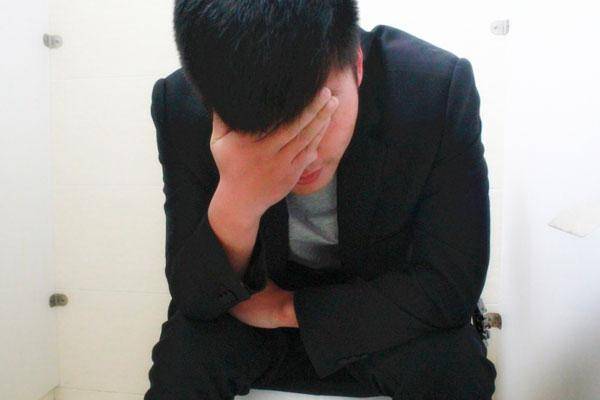When women go to the toilet, they find blood coming out, mostly due to their “period” visiting. And when men go to the toilet and find blood coming out for unknown reasons, they will secretly panic and feel heavy-hearted. Today, let’s take a look at the reasons why men have blood coming out when they go to the toilet.
Why do some men bleed when they go to the toilet?
A very common reason is an improper diet. Most men like to smoke, drink alcohol, eat greasy food, consume many stimulating foods, and drink very little water instead. The intestines become dry, the stool becomes hard, causing obstruction during excretion, making bowel movements strenuous, inevitably leading to scraping of the mucosa and blood seepage, with a small amount of blood residue in related parts of the buttocks. Generally, this condition doesn’t last long. As dietary habits return to normal and bowel movements become smoother, there won’t be any blood seepage.
It could also be due to small ulcers developing in the anal area. Many people, due to improper handling of constipation or frequent diarrhea without paying attention, repeatedly expose this area to irritation and pressure, resulting in such injuries. Some individuals could be affected by psychological factors as well; getting extremely angry or overly emotional can lead to similar issues. The stool excreted would have a bloody appearance, bright red in color, with blood residue on the buttocks, and a notable feature is feeling pain after each bowel movement.
One phenomenon that can occur across all age groups is the development of hemorrhoids. Its occurrence is related to many people’s irregular bowel habits, using smartphones in the toilet, and aging. Once formed, it often makes people restless, causing discomfort even during sleep. Bleeding during defecation is distinctive, usually occurring after defecation, gushing out forcefully, splashing in the toilet. The blood and stool are clearly separated, not mixing. To alleviate this condition, engage in more daily activities, avoid prolonged sitting or standing, clean the buttocks with warm water every night, preferably soaking for a few minutes to help it dissipate.
The issue could also originate from the intestines; as stool passes through the intestines, blood may also be carried out. In this scenario, it’s usually related to the presence of foreign bodies in the intestines. As the foreign body grows in size, the stool becomes thin and elongated, with blood adhering to its surface appearing bright red. During defecation, a noticeable sense of pain would be experienced. It could be due to genetic factors, personal lifestyle choices, or infection by certain bacteria, emphasizing the importance of personal hygiene.
Moreover, there is a more pressing factor not to be overlooked when someone bleeds during defecation, wherein blood and stool mix, and they are interlinked through the mucous on the stool, displaying colors like dark red or maroon. This could suggest the presence of a significant bodily ailment. In this case, the stool may become irregular, alternating between prolonged periods of constipation and watery stools, experiencing abdominal pain with each bowel movement. Additionally, unexplained weight loss may occur. All these signs combined might indicate the growth of something substantial inside the intestines.
Internal health is difficult to assess solely based on external appearance; hence, examination of feces and other bodily excretions becomes an effective means to peek into health. Blood is responsible for transporting nutrients within the body and does not flow easily, much less with stool. If a man finds blood flowing out when using the toilet, there could be an internal injury, regardless of its size, warranting attention.


